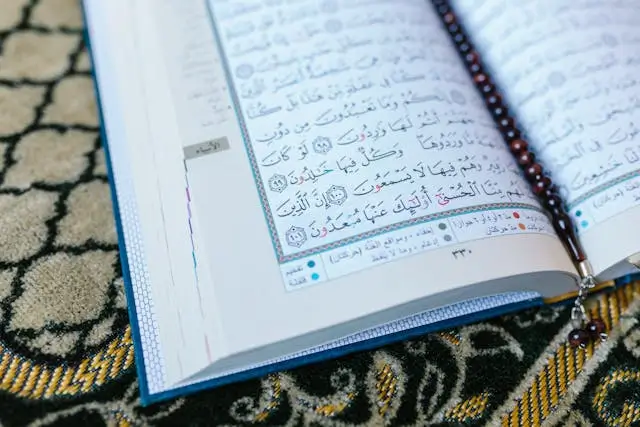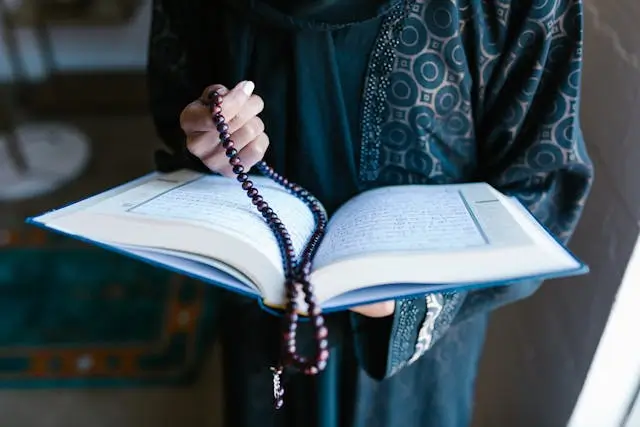Difference Between Makki and Madani Surahs: A Deep Insight into the Quranic Revelation
The Qur’an was revealed gradually to guide humanity step by step. Over 23 years, its chapters came down in different situations — some in Makkah, others in Madinah — shaping the early Muslim community through words of guidance, hope, and strength.
Each revelation carried a distinct purpose. To truly appreciate the message of the Qur’an, it’s important to understand the difference between Makki and Madani Surahs — not just by place, but by message, audience, and spirit.
What Are Makki and Madani Surahs?
The names Makki and Madani refer to the period of revelation — not strictly the place.
- Makki Surahs were revealed before the Prophet ﷺ migrated from Makkah to Madinah.
- Madani Surahs were revealed after the migration, even if they were revealed elsewhere.
This distinction helps scholars and learners understand the development of Islamic teaching from early faith-building to full community life.
How Scholars Identify Makki and Madani Revelation
The classification of a Surah is determined based on:
- Time of revelation — before or after Hijrah.
- Audience addressed — disbelievers in Makkah or believers in Madinah.
- Content and tone — spiritual guidance or social legislation.
- Verse style — short, poetic verses versus long, detailed explanations.
These factors allow deeper reflection on the context behind each message.

Main Characteristics of Makki Surahs
During the Makkan period, Muslims faced hardship, rejection, and persecution. The revelations during this time strengthened faith and patience, preparing believers to endure trials.
1. Focus on Faith and Belief
Makki Surahs revolve around the Oneness of Allah (Tawheed), the Day of Judgment, and Prophethood.
They aim to awaken hearts and correct beliefs, building the spiritual foundation of Islam.
“Say: He is Allah, One.” (Surah Al-Ikhlas 112:1)
2. Emotional and Persuasive Style
Verses are short, powerful, and rhythmic, appealing directly to emotions and conscience. They inspire hope, fear, and reflection.
3. Stories of Earlier Prophets
Narratives of Prophets like Nuh, Ibrahim, Musa, and Yusuf (A.S.) are used to remind believers of patience and steadfastness against opposition.
4. Absence of Legal Rulings
At this stage, no laws or community obligations were introduced — the focus was purely spiritual and moral preparation.
5. Frequent Warnings and Promises
Makki Surahs highlight accountability, resurrection, and paradise versus punishment, calling humanity to truth before it’s too late.
Examples of Makki Surahs:
Surah Yasin, Surah Al-Muzzammil, Surah Al-Kahf, Surah Al-Ikhlas, Surah Al-Najm.
Main Characteristics of Madani Surahs
After the Prophet ﷺ migrated to Madinah, the Muslim community became organized and socially structured. The revelations then began addressing laws, relationships, and collective responsibilities.
1. Guidance for Community Life
Madani Surahs establish laws related to marriage, inheritance, fasting, Jihad, business ethics, and social justice — forming the base of Islamic governance.
2. Addressing People of the Book
These Surahs often engage with Jews and Christians, clarifying beliefs about Prophets and calling towards unity upon the worship of Allah alone.
“O People of the Scripture, come to a word that is just between us and you…” (Surah Aal-Imran 3:64)
3. Longer and Detailed Verses
Unlike Makki Surahs, the tone here is explanatory and instructional. Verses are longer, addressing practical aspects of everyday life.
4. Strengthening Brotherhood
Madani Surahs emphasize Muslim unity, obedience to the Prophet ﷺ, and the importance of justice and compassion in community affairs.
Examples of Madani Surahs:
Surah Al-Baqarah, Surah Aal-Imran, Surah An-Nisa, Surah Al-Ma’idah, Surah Al-Tawbah.
Makki vs Madani Surahs: A Quick Comparison
| Feature | Makki Surahs | Madani Surahs |
|---|---|---|
| Revelation Period | Before Hijrah | After Hijrah |
| Primary Audience | Disbelievers, early Muslims | Muslims, People of the Book |
| Main Focus | Belief, Tawheed, Akhirah | Laws, society, and ethics |
| Tone | Emotional and persuasive | Rational and instructional |
| Verse Length | Short and rhythmic | Long and detailed |
| Theme Examples | Faith, patience, warnings | Law, community, unity |
| Examples | Yasin, Ikhlas, Kahf | Baqarah, Nisa, Ma’idah |
Wisdom Behind the Two Stages of Revelation
The gradual revelation of the Qur’an wasn’t random — it followed a clear divine method.
- In Makkah: The focus was to purify hearts, strengthen belief, and prepare people spiritually.
- In Madinah: The emphasis shifted to building a society based on justice, discipline, and mutual support.
This transition reflects how Islam grows — first within hearts, then across communities. It shows that strong belief must always come before social reform.
Why Understanding Makki and Madani Surahs Matters Today
Recognizing the background of each Surah allows Muslims to:
- Understand why certain verses were revealed.
- Connect themes with the Prophet’s ﷺ journey.
- Appreciate how the Qur’an guided Muslims from faith to action.
For example:
- Makki Surahs remind us to stay firm in belief despite challenges.
- Madani Surahs guide us to live responsibly and ethically in our societies.
Connecting Revelation with the Modern Muslim Life
In today’s world, both types of Surahs continue to guide us:
- The Makki chapters rekindle faith and remind us of Allah’s greatness.
- The Madani chapters teach how to apply that faith — in family, work, and social life.
Each verse, no matter when it was revealed, offers a timeless message for reflection and action.
Reflection and Further Learning
The gradual journey from Makkah to Madinah mirrors a believer’s personal journey — from learning about faith to living it fully.
If you’d like to explore how the Qur’an transforms hearts through its message and structure, visit our article:
👉 The Quran as a Miracle
Conclusion
The difference between Makki and Madani Surahs highlights the balance within the Qur’an — the blend of spiritual awakening and practical guidance.
While Makki Surahs prepare the believer’s soul, Madani Surahs organize life under divine principles. Together, they represent the complete mission of the Prophet ﷺ and the perfect path for every Muslim.






